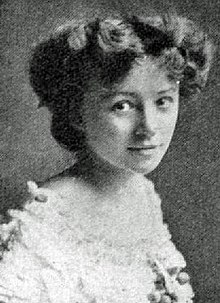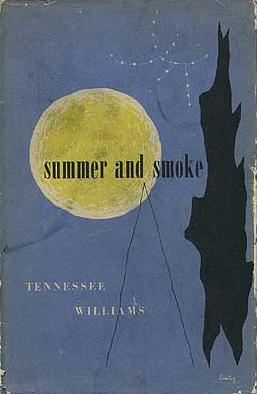
Summer and Smoke is a two-part, thirteen-scene play by Tennessee Williams, completed in 1948. He began working on the play in 1945 as Chart of Anatomy, derived from his short stories "Oriflamme" and the then-work-in-progress "Yellow Bird". The phrase "summer and smoke" probably comes from the Hart Crane poem "Emblems of Conduct" in the 1926 collection White Buildings. After a disappointing Broadway run in 1948, the play was a hit Off-Broadway in 1952. Williams continued to revise Summer and Smoke in the 1950s, and in 1964 he rewrote the play as The Eccentricities of a Nightingale.

Clifton College is a public school in the city of Bristol in South West England, founded in 1862 and offering both boarding and day school for pupils aged 13–18. In its early years, unlike most contemporary public schools, it emphasised science rather than classics in the curriculum, and was less concerned with social elitism, for example by admitting day-boys on equal terms and providing a dedicated boarding house for Jewish boys, called Polack's House. Having linked its General Studies classes with Badminton School, it admitted girls to every year group in 1987, and was the first of the traditional boys' public schools to become fully coeducational. Polack's House closed in 2005 but a scholarship fund open to Jewish candidates still exists. Clifton College is one of the original 26 English public schools as defined by the Public Schools Yearbook of 1889.
Christ's College, Canterbury is an independent Anglican secondary day and boarding school for boys, located in the city centre of Christchurch, New Zealand.

Bradfield College, formally St Andrew's College, Bradfield, is a public school for pupils aged 13–18, located in the small village of Bradfield in the English county of Berkshire. It is noted for its open-air Greek theatre and its triennial Greek Play.

Goodbye, Mr. Chips is a 1939 romantic drama film starring Robert Donat, Greer Garson and directed by Sam Wood. Based on the 1934 novella of the same name by James Hilton, the film is about Mr. Chipping, a beloved aged school teacher and former headmaster of a boarding school, who recalls his career and his personal life over the decades. Produced for the British division of MGM at Denham Studios, the film was dedicated to Irving Thalberg, who died on 14 September 1936. At the 12th Academy Awards, it was nominated for seven awards, including Best Picture, and for his performance as Mr. Chipping, Donat won the award for Best Actor.

Cecil Parker was an English actor with a distinctively husky voice, who usually played supporting roles, often characters with a supercilious demeanour, in his 91 films made between 1928 and 1969.

Major General John Hay Beith, CBE MC, was a British schoolmaster and soldier, but is best remembered as a novelist, playwright, essayist, and historian who wrote under the pen name Ian Hay.
Vinehall School is a co-educational day, boarding school, and nursery located on Vinehall Street, in the town of Robertsbridge, East Sussex. It takes children from ages 2 to 13. The school received an Independent Schools Inspectorate.

Irene Lilian Brodrick, Countess of Midleton was a British stage and screen actress of the 1930s, 1940s and 1950s and also a novelist.

Anthony Chenevix-Trench was a British schoolteacher, classics scholar and alleged child sexual abuser. He was born in British India, educated at Shrewsbury School and Christ Church, Oxford, and served in the Second World War as an artillery officer with British Indian units in Malaya. Captured by the Japanese in Singapore, he was forced to work on the Burma Railway.
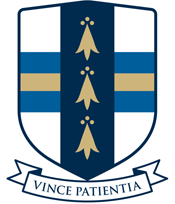
Twyford School is a co-educational, private, preparatory boarding and day school, located in the village of Twyford, Hampshire, England.

The Morosco Theatre was a Broadway theatre near Times Square in New York City from 1917 to 1982. It housed many notable productions and its demolition, along with four adjacent theaters, was controversial.
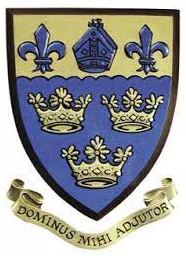
Douai School was a public school run by the Douai Abbey Benedictine community at Woolhampton, England, until it closed in 1999.

Winifred Florence Shotter was an English actress best known for her appearances in the Aldwych farces of the 1920s and early 1930s.

Frederick Leister, was an English actor. He began his career in musical comedy and after serving in the First World War he played character roles in modern West End plays and in classic drama. He appeared in more than 60 films between 1922 and 1961.
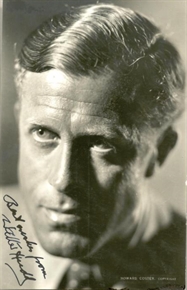
Walter Hudd was a British actor and director.

Housemaster is a 1938 British comedy drama film directed by Herbert Brenon and starring Otto Kruger, Diana Churchill and Phillips Holmes. It was made by ABPC at its Elstree Studios. When three young women come to stay at an elite public school, they cause disruption amongst the male students and teachers. It was based on the 1936 play of the same name by Ian Hay.
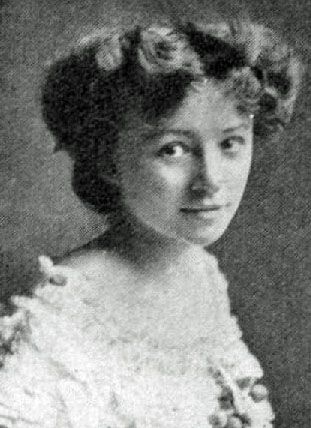
Hilda Trevelyan was an English actress. Early in her career she became known for her performance in plays by J. M. Barrie, and is probably best remembered for creating the role of Wendy in Peter Pan.
Firth Shephard was a British writer, theatre producer and presenter of plays.

The Happiest Days of Your Life is a farce by the English playwright John Dighton. It depicts the complications that ensue when because of a bureaucratic error a girls' school is made to share premises with a boys' school. The title of the play echoes the old saying that schooldays are "the happiest days of our lives".

